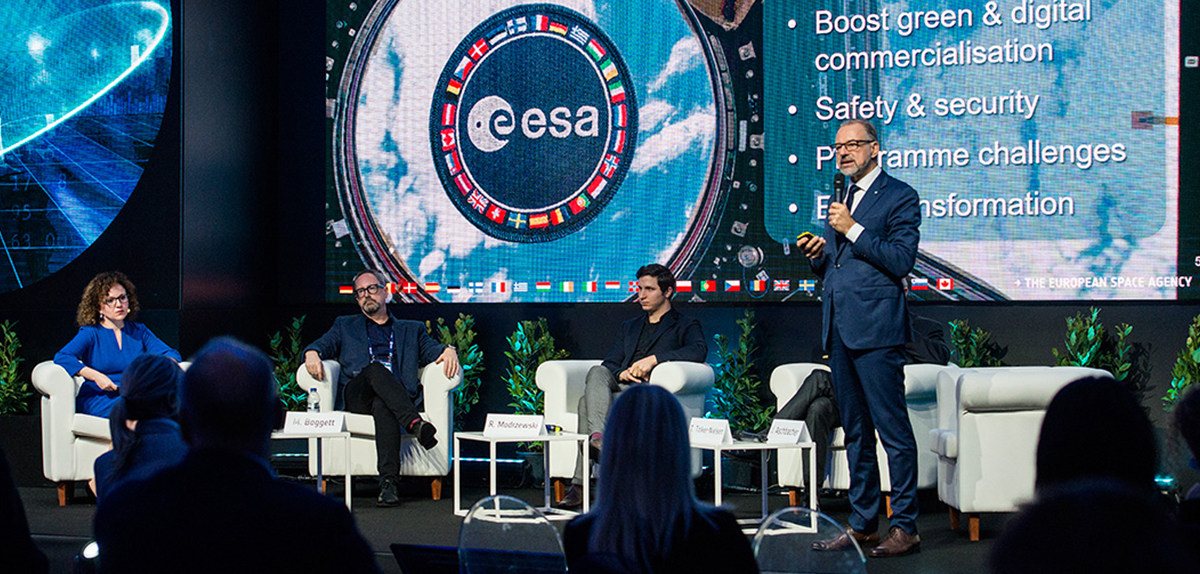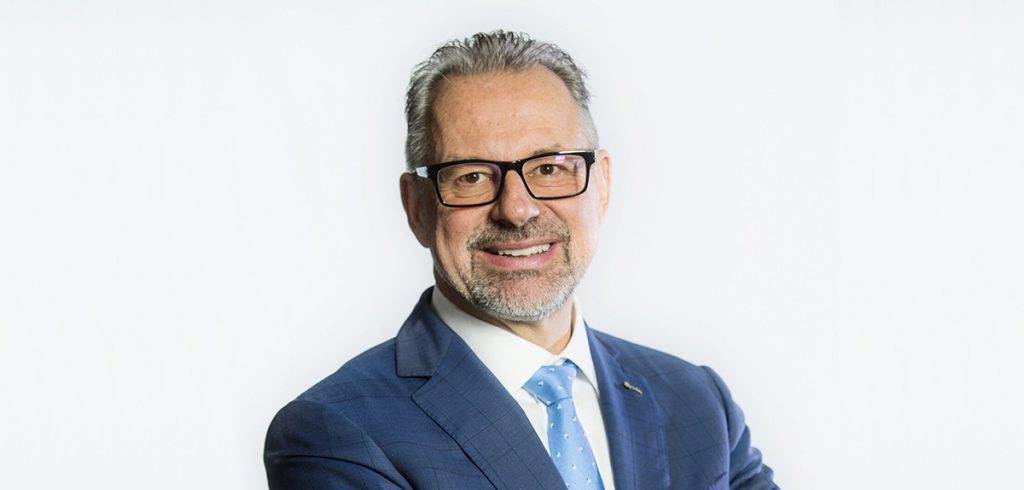Doctor Aschbacher currently holds the position of ESA director of Earth Observation Programs and director of ESRIN, the ESA Earth observation center near Rome.
Born in Austria, Doctor Aschbacher studied at the University of Innsbruck, where he earned a Master’s and PhD in Natural Sciences. His career has spanned over three decades at international organizations, including ESA, the European Commission, the Austrian Space Agency and the Asian Institute of Technology.
ESA Director General
Three years ago, era difícilmente concebible que el mundo sufriera los desastres de una pandemia global y que uno de nuestros socios en actividades espaciales cometiera una agresión contra un estado soberano. La crisis del Covid-19 puso de manifiesto
la vital importancia de las infraestructuras de red críticas y la guerra de Ucrania está revelando ahora la fragilidad de nuestras dependencias, afectando a varios dominios que son clave para la autonomía estratégica de Europa.
At the same time, while we are witnessing the onset of a space rebirth, the European space sector is indispensable to address some of the most urgent challenges of our times, such as understanding climate change and its effects, establishing reliable and secure communications, assessing risks and threats... while encouraging technological innovation and scientific breakthroughs.
As the space sector is transformed, governments and policymakers undertake an important role in enabling the transition and, at the same time, fostering innovation and a corporate spirit.
In order to leverage all of the benefits from current and future space activities and guarantee a sustainable and equitable growth, political actions and investments are fundamental. If Spain expects to maintain its competitiveness, it needs to create a mechanism that allows for the blossoming of critical technologies. Otherwise, technologies for Earth observation, navigation, space exploration, space resource exploitation and the development of space structures will remain as mere concepts for its space industry.
One of the greatest challenges faced by humanity today is the current climate crisis. In this Ministerial Council, we propose leveraging space to clear the way for a green future, supporting the political objectives of Europe’s climate neutrality and decarbonization. Space is an indispensable tool to better understand the current state of the Earth and to offer solutions for a sustainable life on Earth. The Spanish participation in programs will strengthen an already-robust space ecosystem and guarantee that Europe will remain a leader during the upcoming years in terms of technology, innovation and scientific excellence.

With a body count in the hundreds and damages estimated at billions of euros, the continuous increase in the number and intensity of the disasters caused by climate change have raised the alarm in Europe about the fact that we are not adequately equipped to offer fast, specific responses to help citizens and civil protection workers.
We need to build a fast and resilient response based on space that is more robust, for real-time crisis management so as to strengthen land-based systems that could be compromised by malicious actions or natural disasters. With an important Spanish subscription to Future NAV to significantly strengthen space-based detection, robotics and mission planning & execution, the deployment and a strong support of LEO-PNT with sights on a demonstration mission to develop and implement Spanish and European navigation systems.
Cutting-edge technology, in CM22 Spain can help expand and take advantage of past efforts related to ARTES, GENESIS and ESA-EU’s Copernicus and Galileo programs which have been successful, combining a fast observation using Earth observation constellations, a precise navigation and a link with a fast, reliable and streamlined telecommunications network, which enables the development of national and European projects that will expand and strengthen Spain’s commercial applications.
At CM22, ESA member states will also face a historic decision. Should Europe join a sustainable exploration of the Moon and enjoy the scientific, technological and political benefits of participating in this international challenge? If the answer is yes, with the support of Terrae Novae and, in particular, the development of the European Large Logistic Lander as a key element, we could achieve the first European footprint on the Moon by the end of this decade and inspire generations that are yet to be born. By supporting the E3P program and leading the development of the European Large Logistic Lander, Spain will be able to play a major role in the preparation of future Moon missions, securing ESA astronaut seats in the next Artemis missions.
When space advances, other industries benefit"
In addition to the program-related research that is part of the ESA programs, Europe must also foster scientific excellence, innovation and competitiveness. The missions of the Scientific Program help in making Europe an attractive destination for scientists and engineers from outside of Europe and encourage the young generation to participate in STEM courses.
For countries with space ambitions such as Spain, innovations are indispensable drivers of social and economic progress. Thanks to it, Europe can still claim to be leaders in the world arena across a several fields, creating fertile grounds to encourage innovation, which drips down to industry and supports the economic development.
Europe must take advantage of the substantial economic opportunities that come with and from space. This year’s ESA ministerial council offers Spain a great opportunity to strategically help in shaping the European space policy for the upcoming decades and spearhead the development of a new space strategy.
When space advances, other industries benefit. By investing wisely now, at CM22, Spain is addressing the future needs of its citizens.





